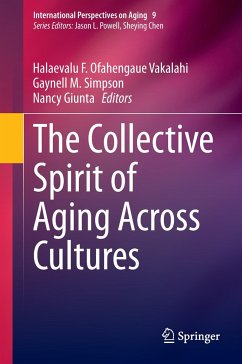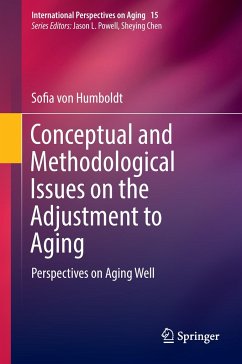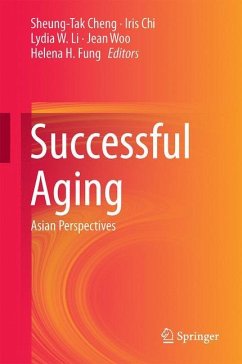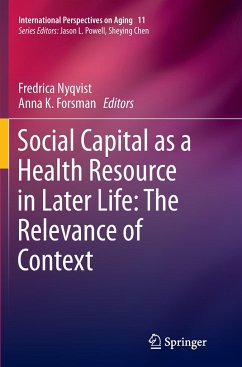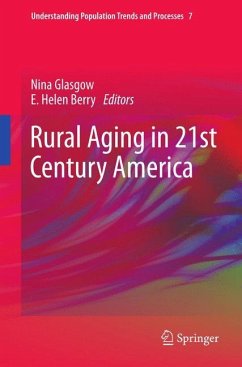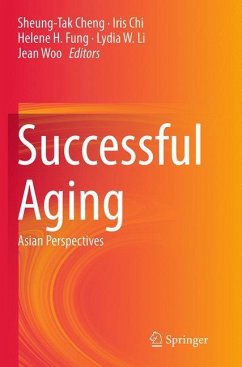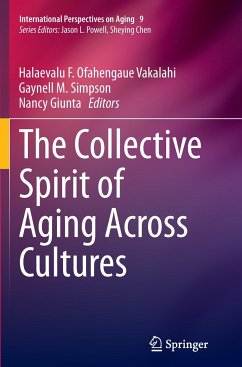
The Collective Spirit of Aging Across Cultures
Versandkostenfrei!
Versandfertig in 6-10 Tagen
76,99 €
inkl. MwSt.

PAYBACK Punkte
38 °P sammeln!
The collective, inclusive, and intersectional framework used in this book speaks to the significance of understanding aging across diverse cultures from multiple perspectives, but still as a shared human experience. The underlying message of the book is that although we are unique and different in our aging processes, we are ultimately connected through this physical, mental and spiritual experience of aging. Thus, regardless of whether we are service providers, service recipients, educators or merely fellow human beings, it is important that we approach the aging experience through a collecti...
The collective, inclusive, and intersectional framework used in this book speaks to the significance of understanding aging across diverse cultures from multiple perspectives, but still as a shared human experience. The underlying message of the book is that although we are unique and different in our aging processes, we are ultimately connected through this physical, mental and spiritual experience of aging. Thus, regardless of whether we are service providers, service recipients, educators or merely fellow human beings, it is important that we approach the aging experience through a collective lens for discovering and sharing resources as we age; honoring the past while simultaneously accepting that the future is here. A few select examples of key findings from this collaborative work are as follows. First, despite progress in the field, certain issues remain to be addressed including the challenges of racism and sexism, mistreatment, the digital divide, poverty, and other social and economic crises in urban and rural communities as they relate to our aging population. Second, the need for sustaining a sense of independence among the aged and interdependence among supportive systems is warranted. Third, our elders continue to benefit from culturally competent services community-based health interventions and social services that addresses normative and emerging challenges for them. Fourth, spirituality in both indigenous and contemporary perspectives remains important for our elders' development and quality of life.



